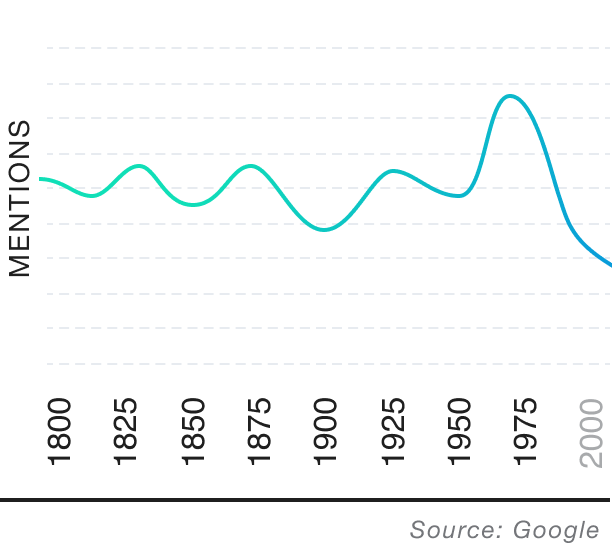[BRAK-ish]
Part of speech: adjective
Origin: Dutch, 16th century
1.
(of water) slightly salty, as is the mixture of river water and seawater in estuaries.
2.
Unpleasant or distasteful.
Examples of Brackish in a sentence
"The fish we caught tasted as brackish as the water we’d pulled them out of."
"The water in the bay was so brackish that we could smell the salt more than a block away."
Popularity Over Time


About Brackish
The root for “brackish” is the Dutch “brac,” meaning “salty.” Between the 16th and 17th century, “brackish” existed in English alongside “brack,” a term meaning salt or salt water. “Brack” fell out of use by the 19th century, but “brackish” is still in common use.
Did you Know?
Though “brackish” is still intermittently used to describe salt water, the term has always had a secondary meaning suggesting something that has been ruined or spoiled — such as fresh water that has been rendered undrinkable by the addition of salt water. This meaning extends back to the word’s etymological ancestor: In Dutch, as in English, “brak” means both “salty water” and also “bad.” In fact, one modern meaning of “brak” in Dutch is “hungover,” though that definition has not yet made it to English.
Comments
Post a Comment